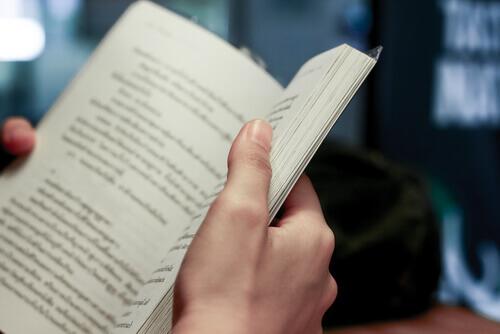Books are Mirrors

“Books are mirrors: you only see in them what you already have inside you”. This quote, from the book The Shadow of the Wind by Carlos Ruiz Zafón, speaks of how personal reading is. We all have such diverse tastes in books. For example, empathetic people tend to prefer novels; more impulsive people prefer action, and imaginative people like anything fictional.
A book never means the same thing for two people.
For book lovers, there’s nothing like coming home and disconnecting with a good book. Reading opens the door to new lives, new cultures, and new ways of seeing things. Plus, it’s relaxing, since it reduces our brain cortisol levels.
The act of reading regularly is great for your brain. It improves cognitive skills such as abstraction, imagination, concentration, and memory, and also prevents degenerative brain diseases. In some ways, our brain acts like a muscle, and reading exercises it.
Acquiring a reading habit is like building a refuge you can run to when life gets complicated. A home that embraces you and makes you feel like you’re not alone. After all, you’re right there with the characters in the stories. and you can’t help but make them your own. That’s why we say that books are mirrors.

Books are mirrors that help our concentration
Every time we start to read, our brain’s left hemisphere starts up and works at full speed to activate various areas. According to neurologist Stanislas Dehaene of the Collège de France, our reading abilities modify our brains.
Psychologist Nicole K. Speer of Washington University says that by reading, we recreate what we imagine. In fact, we activate areas in our brain as if we were actually doing what the character’s doing in the book.
Reading feeds our brain.
It’s like that because — according to evolutionary psychology — not being alert could have cost our ancestors their lives. What if hunters didn’t pay attention to the stimuli around them?
They could have been devoured or died of starvation. That’s why sitting still and concentrating on something like reading is considered to have been a huge step in our evolution. Evolution allowed us to spend time resting without having to be constantly alert to all the threats around us.
If you want to develop good concentration in children, encourage reading as a habit. Just twenty minutes of reading out loud to your child each day can help their attention and concentration skills. These are two abilities they will most certainly need to be successful later on in life.

Reading impacts professional success
For over 20 years, a team at Oxford University analyzed the habits and activities of almost 20,000 young people. They wanted to see what activities could predict professional success by age 30. Only reading seemed to have an impact on professional success: no other activity, like sports or movies, had any effect.
The ability to read modifies our brain, according to neurologist Stanislas Dehaene, Chair of Experimental Psychology at the Collège de France. A reader has more grey material and neurons in their brain than people who don’t read.
Gustave Flaubert, a French writer, couldn’t have said it better when he wrote, “Life must be a constant education“. The world keeps turning. So, it’s better professionally to train ourselves continually through reading.
We must keep ourselves up-to-date and prepared for new circumstances. Just like we take care of ourselves by going to the gym, we should feed our cognitive processes, which are also somewhat trainable.
“Books are mirrors: you only see in them what you already have inside you”. This quote, from the book The Shadow of the Wind by Carlos Ruiz Zafón, speaks of how personal reading is. We all have such diverse tastes in books. For example, empathetic people tend to prefer novels; more impulsive people prefer action, and imaginative people like anything fictional.
A book never means the same thing for two people.
For book lovers, there’s nothing like coming home and disconnecting with a good book. Reading opens the door to new lives, new cultures, and new ways of seeing things. Plus, it’s relaxing, since it reduces our brain cortisol levels.
The act of reading regularly is great for your brain. It improves cognitive skills such as abstraction, imagination, concentration, and memory, and also prevents degenerative brain diseases. In some ways, our brain acts like a muscle, and reading exercises it.
Acquiring a reading habit is like building a refuge you can run to when life gets complicated. A home that embraces you and makes you feel like you’re not alone. After all, you’re right there with the characters in the stories. and you can’t help but make them your own. That’s why we say that books are mirrors.

Books are mirrors that help our concentration
Every time we start to read, our brain’s left hemisphere starts up and works at full speed to activate various areas. According to neurologist Stanislas Dehaene of the Collège de France, our reading abilities modify our brains.
Psychologist Nicole K. Speer of Washington University says that by reading, we recreate what we imagine. In fact, we activate areas in our brain as if we were actually doing what the character’s doing in the book.
Reading feeds our brain.
It’s like that because — according to evolutionary psychology — not being alert could have cost our ancestors their lives. What if hunters didn’t pay attention to the stimuli around them?
They could have been devoured or died of starvation. That’s why sitting still and concentrating on something like reading is considered to have been a huge step in our evolution. Evolution allowed us to spend time resting without having to be constantly alert to all the threats around us.
If you want to develop good concentration in children, encourage reading as a habit. Just twenty minutes of reading out loud to your child each day can help their attention and concentration skills. These are two abilities they will most certainly need to be successful later on in life.

Reading impacts professional success
For over 20 years, a team at Oxford University analyzed the habits and activities of almost 20,000 young people. They wanted to see what activities could predict professional success by age 30. Only reading seemed to have an impact on professional success: no other activity, like sports or movies, had any effect.
The ability to read modifies our brain, according to neurologist Stanislas Dehaene, Chair of Experimental Psychology at the Collège de France. A reader has more grey material and neurons in their brain than people who don’t read.
Gustave Flaubert, a French writer, couldn’t have said it better when he wrote, “Life must be a constant education“. The world keeps turning. So, it’s better professionally to train ourselves continually through reading.
We must keep ourselves up-to-date and prepared for new circumstances. Just like we take care of ourselves by going to the gym, we should feed our cognitive processes, which are also somewhat trainable.
This text is provided for informational purposes only and does not replace consultation with a professional. If in doubt, consult your specialist.







